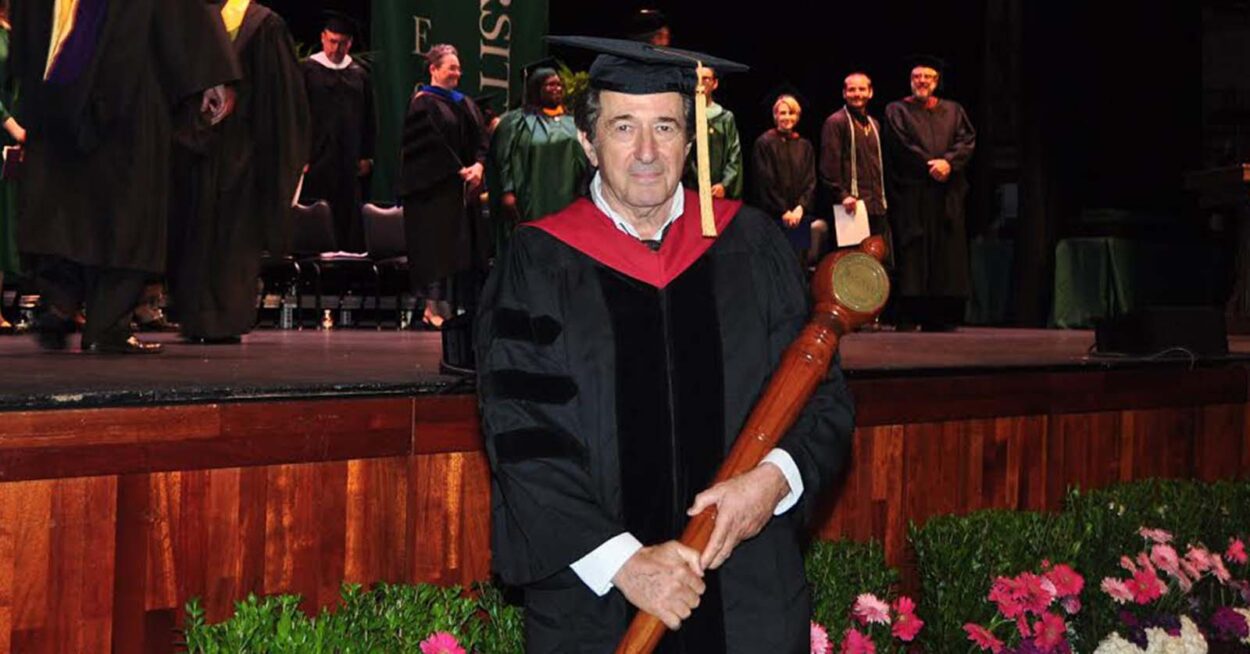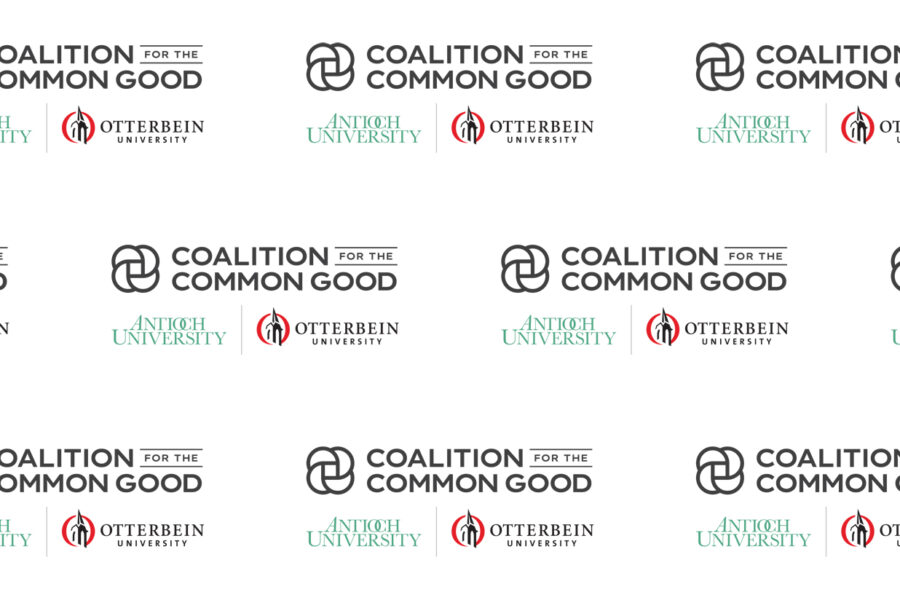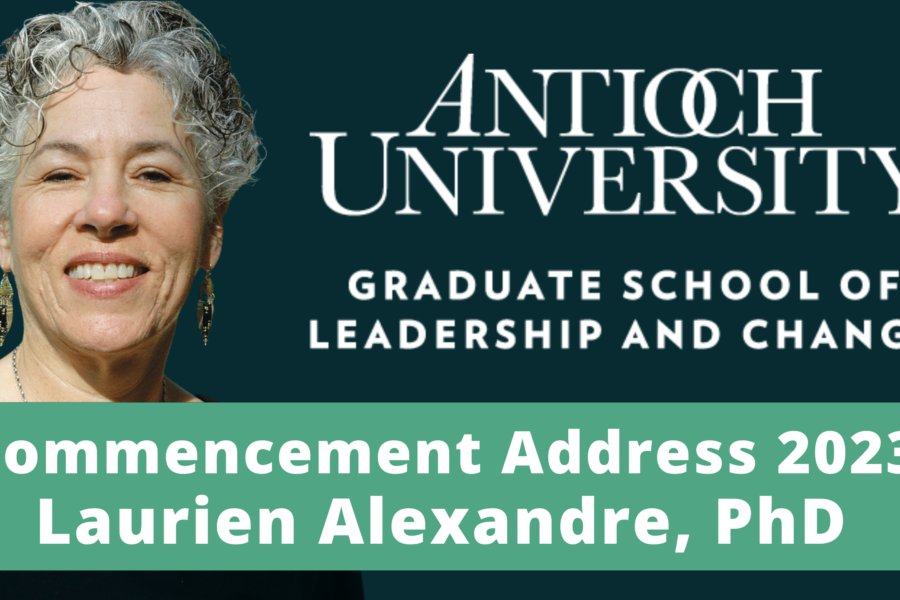Earlier this year, Antioch University introduced a new $10,000 scholarship that will be awarded to undergraduates. Called the Undergraduate Founders Scholarship, it highlights the formative and developmental work of Al Erdynast, the first director of Antioch University’s Los Angeles campus, the founder of the undergraduate studies program there, and a key member of the faculty for fifty years and counting.
“As we look forward to the next fifty years of Antioch in LA, we want to honor Al’s commitment to making a rich interdisciplinary education more accessible to students,” says MeHee Hyun, the Dean of Undergraduate Studies. The Undergraduate Founders Scholarship will help students access the educational opportunities provided by the undergraduate studies program and make progress toward completing their degrees.
Honoring Undergraduate Program Founder Al Erdynast
Part of why Antioch University is honoring Erdynast in this way is to call attention to the special approach that he has brought to this program—and imbued into its DNA—since the very beginning. As Hyun says, “To learn with Al means not just preparing to make meaningful contributions in psychology and business, but also considering how critical ideas like compassion, ethics, humor, and beauty—touch all of our lives and contribute to a greater common good.” He has embodied these traits over his fifty years and counting at Antioch.
Erdynast started the undergraduate program soon after arriving in Los Angeles. He was hired as the first director of Antioch University’s Los Angeles center, which opened its doors on August 1, 1973. By August 15, fifteen days later, Erdynast had taken on the director role. Though for the first year, he juggled running the center with the completion of his Doctor of Business Administration from Harvard Business School. Erdynast completed his doctorate in 1974. But it was a no-brainer to take the Antioch job. “Even when I was an undergraduate student at UCLA,” says Erdynast, “Antioch had a reputation for innovation, integrity, and quality. So when an opportunity became available at Antioch, I was immediately attracted to the position.”
As the director of the new Los Angeles campus, Erdynast advanced Antioch’s reputation of innovation and developed a distinctive undergraduate program. There were few re-entry programs across the country at the time, so he created the program specifically designed for adults returning to school. Erdynast sought to bring Antioch’s educational excellence to students who often had been left behind or deliberately excluded from higher education. “We’ve found ways to incorporate transforming their rich experiences in work and life into academic credit,” says Erdynast. He emphasizes that Antioch University was a pioneer in doing so. But the guiding spirit wasn’t to be the first in something but instead was to innovate in service of helping the many thousands of undergraduates who have come through the campus to complete their undergraduate degrees.
Starting a Campus and Creating New Programs
The median age of students in the undergraduate completion program was 36 in those years. Today, while most students are still older than traditional undergraduates, the campus does serve a higher proportion of young adults. Regardless of age, students continue to be attracted to Antioch University and its reputation in developmental adult education that prepares them to enter spaces they may previously not have had access to.
But in the early years, even though these students were receiving degrees, it remained an open question whether other universities would accept those degrees. So Erdynast was thrilled when two of his early students, Cheryl Armon and Joan Nelson, were accepted to master’s programs at perhaps the most famously prestigious and hard-to-enter university, Harvard. Of course, Erdynast doesn’t accept that his alma mater’s prestige meant they were doing a better job of instructing students than the program he was now directing. As he says, “We had higher standards at Antioch.”
The idea of starting a campus and creating new programs tie in with Erdynast’s career-long interests in moral development and education. This, combined with a focus on mutual respect for others as well as creating social change, has led to some interesting developments, such as a program he created in the women’s prison in Chino, California, that focused on moral development. (Read more about Erdynast’s career and that program in the article “50 Years in the City of Angels’‘ from last year’s Antioch Alumni Magazine.) Erdynast became a true believer in the power of education to help people through hard times—and to prevent recidivism. “I think the government should fund colleges like Antioch to offer degree programs in prisons, because we have a huge prison problem,” says Erdynast. “It would financially be beneficial to have inmates not returned to prison—and trying to stimulate their moral development would be effective compared to other rehabilitation programs.”
From Administrator to Teacher
As the Los Angeles campus developed and grew, many other Antioch campuses throughout the country began offering quality degree completion programs to adult students, often in the mold of the programs offered on the Los Angeles campus. When this became the pattern, Erdynast believed his mission as an administrator was achieved. He relinquished his role as administrator and embraced a role as faculty member at the Los Angeles campus. Today, he still teaches, with his teaching philosophy much like the one he had in administration, highlighting the need for effective, inclusive, progressive education.
Erdynast’s teaching is also based on mutual respect. He compels students to listen to each other before they listen to him. This method has helped them build respect for their fellow students, and in turn to be more respectful of themselves. Erdynast believes it affirms their self-esteem, that they can learn and apply concepts better than before. “I advocate that undergraduate students can do no wrong,” says Erdynast. Because students tend to be afraid of disapproval, he encourages them to venture with their own thinking and not concern themselves with being right. However, as one of his old students, Natalie Lenet pointed out in a document she made for Erdynast, titled “The Ten Commandments of Being Al Erdynast’s Student,” if any of his students address him as Doctor Erdynast instead of Al, “you’re going to have an intellectual fight.”
Erdynast, who has served longer at Antioch University than anyone else across today’s five campuses, has called himself “the senior petrified faculty of the university.” But in reflecting on this title today, he suggests that maybe a revision to that title is in order. Because he is always updating his courses to remain relevant with today’s students, he says, “Perhaps I should merely be referred to as the senior petrified student at Antioch.”
A Scholarship Based on a Legacy
Thanks in no small part to Erdynast’s ever-evolving outlook on education, the undergraduate program continues to flourish. Erdynast hopes that the Undergraduate Founder’s Scholarship will grow and enable new potential candidates who admire Antioch University’s mission to study at Antioch. “I’m very touched and never imagined a scholarship named after me,” he says.But the name is fitting. A scholarship named after Erdynast, an administrator and educator who has dedicated fifty years to Antioch’s Los Angeles center, is a continuing testament to his hard work. As Hyun says, “Al has helped us create a unique program that caters to adults engaged in their communities, and this scholarship honors that legacy.”




